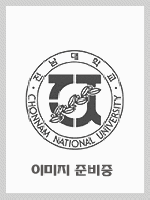상세정보
상세정보
부가기능
Stuff theory [electronic resource] : everyday objects, radical materialism
상세 프로파일
| 자료유형 | 단행본 |
|---|---|
| 서명/저자사항 | Stuff theory [electronic resource]: everyday objects, radical materialism / Maurizia Boscagli. |
| 개인저자 | Boscagli, Maurizia, author. |
| 발행사항 | New York: Bloomsbury Academic, 2014. |
| 형태사항 | 1 online resource. |
| 기타형태 저록 | Print version: Boscagli, Maurizia, author. Stuff theory 9781623562687 |
| ISBN | 9781623560577 (electronic bk.) 1623560578 (electronic bk.) |
| 서지주기 | Includes bibliographical references and index. |
| 내용주기 | Machine generated contents note: -- Introduction: Of Jena Glassware and Potatoes -- Matter in the Moment 1. Homeopathic Benjamin: A Flexible Poetics of Matter 2. For the Unnatural Use of Clothes: Fashion as Cultural Assault 3. Paris Circa 1968: Cool Spaces, Decoration, Revolution 4. "You Must Remember this:" Memory Objects in the Age of Erasable Memory 5. Garbage in Theory: Waste Aesthetics Envoi: What Should We Do With Our Stuff Notes Index. |
| 요약 | "Stuff, the hoard of minor objects which have shed their commodity glamor but which we refuse to recycle, flashes up in fiction, films and photographs as alluring, unruly reminder of how people and matter are intertwined. Stuff is modern materiality out of bounds that refuses to be contained by the western semiotic system. It declines its role as the eternal sidekick of the subject, and thus is the ideal basis for a counter-narrative of materiality in flux. Can such a narrative, developed by the new materialism, reinvigorate the classical materialist account of human alienation from commodities under capital? By shifting the discussion of materiality toward the aesthetic and the everyday, the book both embraces and challenges the project of new materialism. It argues that matter has a politics, and that its new plasticity offers a continued possibility of critique.Stuff Theory's five chapters illustrate the intermittent flashes of modern 'minor' materiality in twentieth-century modernity as fashion, memory object, clutter, home de;cor, and waste in a wide range of texts: Benjamin's essays, Virginia Woolf's and Elfriede Jelinek's fiction, Rem Koolhaas' criticism, 1920s German photography and the cinema of Tati, Bertolucci, and Mendes. To call the commodified, ebullient materiality the book tracks stuff, is to foreground its plastic and transformative power, its fluidity and its capacity to generate events. Stuff Theory interrogates the political value of stuff's instability. It investigates the potential of stuff to revitalize the oppositional power of the object.Stuff Theory traces a genealogy of materiality: flashpoints of one kind of minor matter in a succession of cultural moments. It asserts that in culture, stuff becomes a rallying point for a new critique of capital, which always works to reassign stuff to a subaltern position. Stuff is not merely unruly: it becomes the terrain on which a new relation between people and matter might be built"-- |
| 요약 | "Stuff, the hoard of minor objects which have shed their commodity glamor but which we refuse to recycle, flashes up in fiction, films and photographs as alluring, unruly reminder of how people and matter are intertwined. Stuff is modern materiality out of bounds that refuses to be contained by the western semiotic system. It declines its role as the eternal sidekick of the subject, and thus is the ideal basis for a counter-narrative of materiality in flux. Can such a narrative, developed by the new materialism, reinvigorate the classical materialist account of human alienation from commodities under capital? By shifting the discussion of materiality toward the aesthetic and the everyday, the book both embraces and challenges the project of new materialism. It argues that matter has a politics, and that its new plasticity offers a continued possibility of critique. Stuff Theory's five chapters illustrate the intermittent flashes of modern 'minor' materiality in twentieth-century modernity as fashion, memory object, clutter, home decor, and waste in a wide range of texts: Benjamin's essays, Virginia Woolf's and Elfriede Jelinek's fiction, Rem Koolhaas' criticism, 1920s German photography and the cinema of Tati, Bertolucci, and Mendes"-- |
| 해제 | Provided by publisher. |
| 해제 | Provided by publisher. |
| 일반주제명 | Material culture in literature. Personal belongings in literature. Personal belongings in art. Property in literature. LITERARY CRITICISM / Semiotics & Theory. PHILOSOPHY / Metaphysics. |
| 분류기호(DDC) | 801 |
| 언어 | 영어 |
| 바로가기 |  |
소장정보
- 소장정보
![]() 보존/밀집/기증 자료 신청
보존/밀집/기증 자료 신청
![]() 분관대출
분관대출
![]() 서가부재도서
서가부재도서
![]() 무인예약대출
무인예약대출
![]() 배달서비스
배달서비스
![]() 소장위치출력
소장위치출력
| No. | 등록번호 | 청구기호 | 소장처 | 밀집번호 | 도서상태 | 반납예정일 | 예약 | 서비스 | 매체정보 |
|---|---|---|---|---|---|---|---|---|---|
| 1 | E158441 | EB 801 | 중앙도서관[본관]/E-Book/ | 대출가능 |
|
태그
- 태그
















































